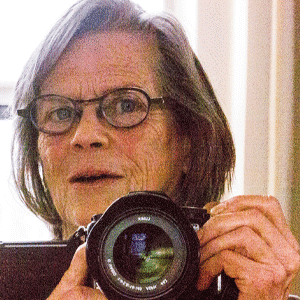Get Reel:
Make fishing your Manitoulin mission
It’s 7 am at the Providence Bay Marina and a warmly-smiling bearded fellow walks towards a charter fishing first-timer, one hand clutching a coffee, the other extended in greeting. Neil Debassige is the owner of Island Sunrise Cottages and Fishing Charters, (he’s also the principal of Lakeview School in M’Chigeeng), and this morning we’re headed out on to the big water of Lake Huron on the south coast of Manitoulin to do some big fishing. Regular guest Glen McCosham, who goes out with Neil four or five times a year, is the other passenger; he hails from Lively, near Sudbury, and he is psyched. “I was up at 5:30,” says Glen, “I can’t sleep if I’m going out on a charter!”
We climb into Neil’s spotless craft, moored along thirty-odd others in the slips, and slowly move out of the bay into the open water. Neil sets up four downrigger rods off the stern, explaining how they work to catch the Atlantic, pink, coho and Chinook salmon, and the lake and rainbow trout this area is known for. “We’re fishing down and back,” he explains as he attaches the large shiny lures, “so the line goes straight down 30 feet to a release clip attached to a weighted ball. From there the line with the lure at the end goes back 125 feet. When a fish pulls on the lure, that line is released from the clip and goes slack, causing the rod to pop up, not down, which makes sense when you understand the mechanics of the system.”
With the mechanics taken care of, we settle in. “Today is perfect,” sighs Glen. It’s nippy and overcast, we’re all bundled in several layers; the waves are choppy, giving for a wilder ride than, say, fishing on an inland lake. With the insider knowledge of a long-time charter enthusiast, Glen adds, “What you don’t want is a calm day.” (You don’t?) “I call those ‘bluebird days’ when it’s sunny and the water is like glass out here.” Pressing for what possibly could be wrong with such days, when all is unruffled, even your butterflies, Glen replies, “then you’re swatting at deer flies and mosquitoes.” Fine, bring on the shifting seas! We’re looking for an authentic experience here, not some onboard picnic, after all.
More boats are zipping by now, heading into deeper waters. Out of consideration for this guest’s lingering butterflies, Neil stays closer in the bay, watching the sonar screen. He explains that fish feed in a ‘thermocline’ in the 50-degree range.
“Today is perfect,” sighs Glen. It’s nippy and overcast, we’re all bundled in several layers; the waves are choppy, giving for a wilder ride than, say, fishing on an inland lake.
“It all has to do with the water temperature. When it’s cold, fish won’t expend their energy to eat. We fish at the temperature where they’re feeding.” While the guests chat companionably, Neil quietly keeps an eye on the screens and rods the whole time. Suddenly he jumps up, seizes a rod and starts reeling like a man possessed. Glen grabs the net, and we land a beautiful pink salmon, small by their standards, about 2 pounds, but big by mine; it goes into a well filled with lake water. Off we motor, setting the rods for the Big One that Neil feels is out there.
Neil is a born teacher, and his wife Dianne is a teacher too; they fish in summer and hunt in fall. He taught in the Wikwemikong Unceded Indian Reserve, and in Kashechewan First Nation in James Bay with Dianne before becoming principal of Lakeview School. “All kids, in all schools, are awesome,” he says, seeing his job as “unleashing potential.” He and Dianne have designed a program called “National Archery in the Schools” to teach this “very levelling sport that is not based on strength. It’s great for learning the ‘humility’ lesson of the Ojibwe Seven Teachings of the Grandfathers.” Neil also runs Fuel the Fire TV with another passionate outdoorsman, Rob Seifried, of Kagawong; their motto ‘Get Outdoors’ is on Neil’s t-shirt. Their first outdoor sports episode secured a deal with Wild TV on the Bell network, who intend to produce 13 more starting in January. The series’ pilot can be viewed at www.fuelthefiretv.ca.
The men are working like mad, bringing in the 11.5 pound Chinook salmon in what seems like seconds. They high-five each other, grinning like kids with their first catch. “It’s all about the charter captain,” enthuses Glen, “he has to know where the fish are, and stay on them!”
This reporter’s job so far has been to take notes–ok, just try this while on a bobbing boat!–and photos. That’s when I remember to unpack my camera. Just in time, too, as Neil races back to the stern while Glen assumes his position, lifting a rod with both hands and reeling furiously. “See?” shouts Glen, “Neil has that sixth sense!” as he manoeuvres the rod, the fish fighting him every inch of the way. The men are working like mad, bringing in the 11.5 pound Chinook salmon in what seems like seconds. They high-five each other, grinning like kids with their first catch.
“It’s all about the charter captain,” enthuses Glen, “he has to know where the fish are, and stay on them!”
It’s been about three hours, during which Neil reflects on how time on the water is just as important as catching fish: “Time spent outdoors is our most valuable time, it teaches us to respect each other and our environment.” He asks if I’d like to go out deeper. “The waves will be higher out there,” he says, compounding the butterfly issue. “Better to have enjoyed yourself than swear off fishing because you pushed yourself too far your first time out.”
As the two men stroll back to continue their quest, their relaxed forms seem to embody a phrase of the poet and naturalist, Henry David Thoreau: “Many men go fishing all of their lives without knowing that it is not fish they are after.”
Back at the marina, we’re greeted by the harbour master, Ken Niles, who rings a bell to announce a catch over ten pounds. People flock to the weighing station to take a look. Ken takes two photos of the crew, one for the marina’s Facebook page and many albums, and one “to pick up when you come back.” Four years ago, Ken came from McKerrow, just off the Island, and started taking people out fishing. He’s since been hired by the Algoma Manitoulin Harbour Commission to run the marina, and now he’s “got no time to fish.” He loves promoting the fishing in Providence Bay, calling out in French and English to visitors from Timmins, Québec, London, “everywhere”, by name, overseeing the launchings and landings, answering the phone (“How’s the fishing? Fantastic!”) and manning the marine radio. His dog Lila follows him around as he keeps the coffee pot on and cleans the common areas; he also organizes an annual derby, fundraising for various local causes, offers the loan of a box of lures and awards a filet knife to “fish of the month” winners. Ken Niles is a prize himself.
At the immaculate fish cleaning station, kids crowd around to watch Neil rinse and clean the fish, filleting the red-orange flesh and vacuum-packing it. As the two men stroll back to continue their quest, their relaxed forms seem to embody a phrase of the poet and naturalist, Henry David Thoreau: “Many men go fishing all of their lives without knowing that it is not fish they are after.”
Fishing licences are required for all fishing, available at several licence issuers on Manitoulin.
Article by

